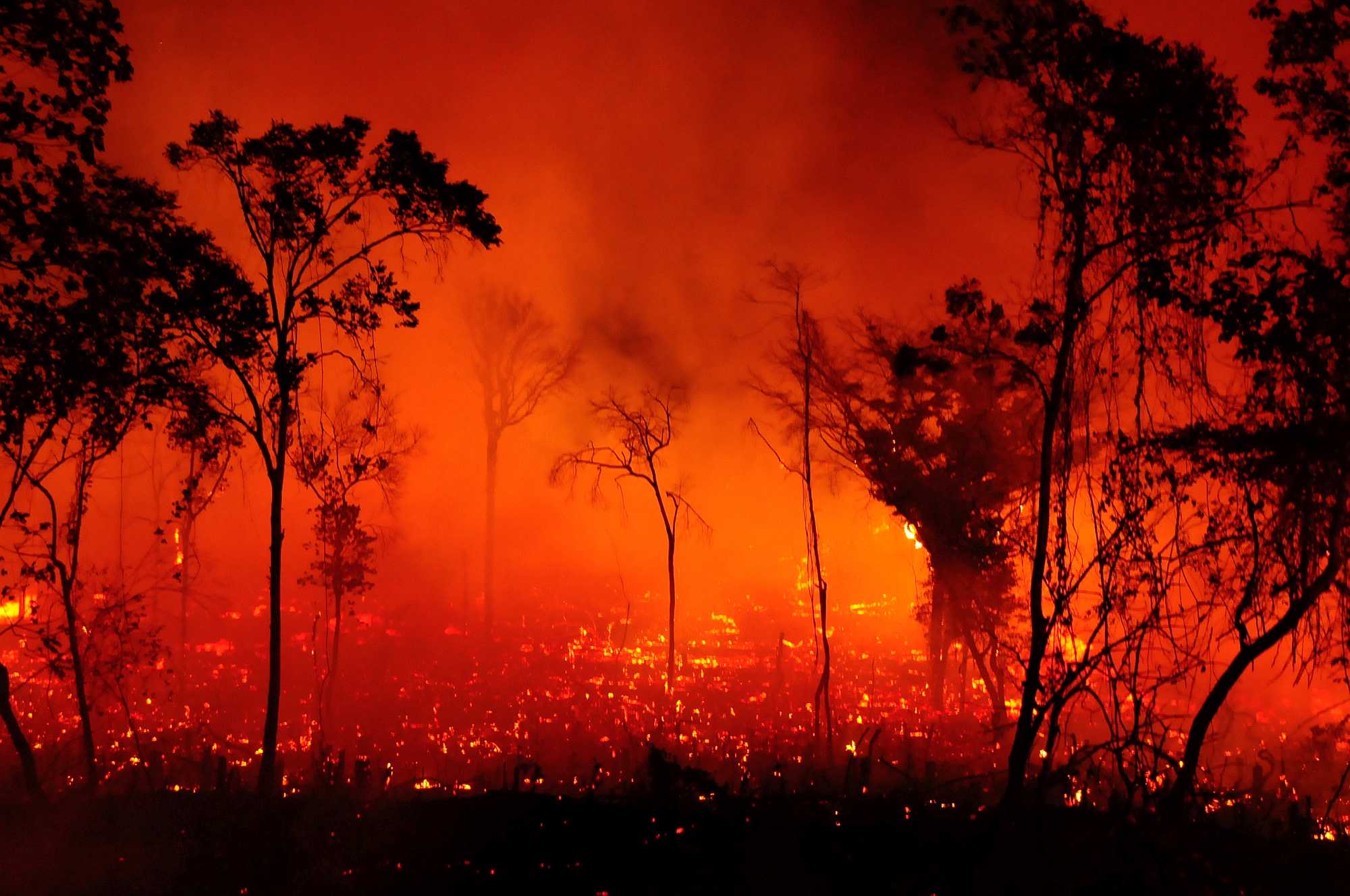In the midst of the intense political turmoil unfolding in Brasília, a government move has been largely ignored by the mainstream press that – if eventually carried forward – could seriously impact accurate satellite monitoring of Amazon deforestation.
The scheme, some critics charge, was likely prompted by the bancada ruralista, the nation’s agribusiness lobby, which may be eager to end the independent analysis of remote sensing data that has shown a dramatic uptick in deforestation in recent years – an increase largely propelled by land thieves and cattle ranchers in the Amazon, and the soy industry in the Cerrado.
Brazil’s Ministry of the Environment published an invitation to private companies to bid for some of the deforestation remote sensing services that have up until now been carried out by INPE (the government’s National Institute for Space Research). The invitation gave a very short period – eight days – for the companies to submit bids.
At a cost of 78 million reais (US$ 24 million), the company winning the contract would monitor deforestation in the Amazon and in other regions, including the Cerrado and on indigenous reserves. The Cerrado currently has the highest rate of deforestation in Brazil, while indigenous reserves and Indian land rights are under assault by the Temer administration.
Importantly, the selected private company would play a key role in assessing whether or not Brazil was achieving its carbon reduction commitments made at the Paris Climate summit in December 2015.
The ministry’s move took almost everyone by surprise. Ricardo Magnus Osório Galvão, the director of INPE, only heard of what had happened through a journalist. Not even the Ministry of Science, Technology, Innovations and Communication (MCTIC), to which INPE is attached, was consulted.
Luiz Davidovich, the president of the Brazilian Academy of Science (ABC), and Helena Nadar, the president of the Brazilian Society for the Progress of Science (SBPC), jointly sent a letter to President Temer in which they expressed “surprise” and “indignation” at the high-handed way in which the decision was taken:
“This unilateral position adopted by the Ministry of the Environment creates a fissure in its history of harmonious coexistence with the MCTIC.”
But it wasn’t the abrupt way in which the new measure was announced that attracted most criticism from deforestation experts, but the content of the invitation to bid. Specialists in the field weighed in, expressing shock at the proposed changes.
In an interview with Mongabay, Arnaldo Carneiro, a senior researcher at the National Institute of Amazonia Research (INPA) and an expert in geo-information science, said:
“The way in which it [the notice to bid] was drawn up demonstrates total incompetence in the subject, for it mixes services, equipment and monitoring. They [the people drawing up the notice] showed such incompetence that they weren’t even able to assess the quality of the service given by INPE.”
Other experts told the direto da ciencia website that the new deal would allow the Ministry of the Environment to assess the work done by the firm it contracted, ending the present set-up by which appraisals are carried out by an independent research body. “This will generate a conflict of interests,” the experts said.
A petition to the environmental minister, José Sarney Filho, was quickly organized, and has received support from more than 6,500 responders.
That document made three criticisms of the proposed privatization, noting that 41 percent of the work to be carried out by the private company winning the bid is already done by existing organizations, mainly INPE; that contracting a new company, with a different system, would make historical comparisons very difficult; and that the term of eight days to prepare a bid was vastly inadequate.
The Environment Ministry responded to the criticisms. Marcelo Cruz, the executive secretary at the Environment Ministry, told the Estado de S. Paulo that the ministry’s goal is to broaden their supply of data so they can create what he called “a center of governance.” The objective, he said, was not to replace the Prodes satellite monitoring program run by INPE, but to provide information in real time to support the work.
The protests against privatization continued to gain momentum, until the ministry felt it had no option but to backtrack and reconsider its proposal. It decided on 4 May to withdraw the invitation to bid in order to adjust the terms of reference. The ministry said it would be reissuing the offer in the near future. No action has been taken since then.
No one knows whether or not a new offer to bid will, in fact, be issued. Mongabay contacted the Ministry of the Environment to find out but it declined to grant an interview.
Despite its withdrawal for now, the privatization proposal has left many specialists in the field uneasy. Off the record, researchers told the direto da ciência website that the technical requirements demanded by the Ministry of the Environment were so complex and the timescale so short that almost no Brazilian institute would be able to compete. They feared that one of the results – and, indeed, perhaps, one of the objectives – was to allow a foreign company to take over.
Ricardo Folhes, a specialist in remote sensing, told Mongabay that he believed that the ministry proposed the change for political reasons: “It is very clear; the ministry wants autonomy to manage the devastation data on its own.”
But, he warned, by taking the action it had announced, the ministry risked destroying one of the public sector’s most consistent monitoring systems, and weakening INPE, one of Brazil’s most solid research institutions.
Folhes agrees with others speaking off the record that the bancada ruralista, the nation’s powerful agribusiness lobby, lies behind the initiative, but is confident that they will not succeed:
“The government doesn’t have the legitimacy to dismantle a quality public service, like the one run by INPE, and to hand it on a plate to the ruralists, who know very well what they want to do with it.”
There is no doubt that underlying the privatization debate is deep concern over the alarming increase in Amazon deforestation now underway. Rates fell throughout most of the 2005-2012 period, but grew sharply over the last two years.
The 29 percent leap in 2016, to almost 8,000 square kilometers (3,0809 square miles), has made the country’s climate objective – agreed to in Paris – to reduce felling to 3,900 square kilometers (1,506 square miles) by 2020, a difficult goal to achieve.
One of the main reasons for the increase, argues the Environment Ministry’s Marcello Cruz, is the lack of real time data, which, he says, will be provided through the new privately contracted arrangement.
But Ricardo Folhes sees things very differently: “Forest felling and the increase we are seeing today are not a result of problems in monitoring, but of a set of reactionary, predatory and ethnocide political and private policies.”
The budget given to IBAMA, Brazil’s environmental agency, to monitor deforestation was cut by almost half from 2013 to 2015, reduced from R$ 121 million ($37 million) to R$ 65 million ($20 million), making it nearly impossible for the agency to capture and fine those responsible for illegal deforestation detected by INPE’s satellite imaging.
Like others consulted for this story, Folhes believes that the considerable investment the Ministry of the Environment is prepared to make in privatization would be much better spent in reversing the huge cut in IBAMA’s budget and improving on the current remote sensing program.
This article appeared originally in Mongabay – https://news.mongabay.com












